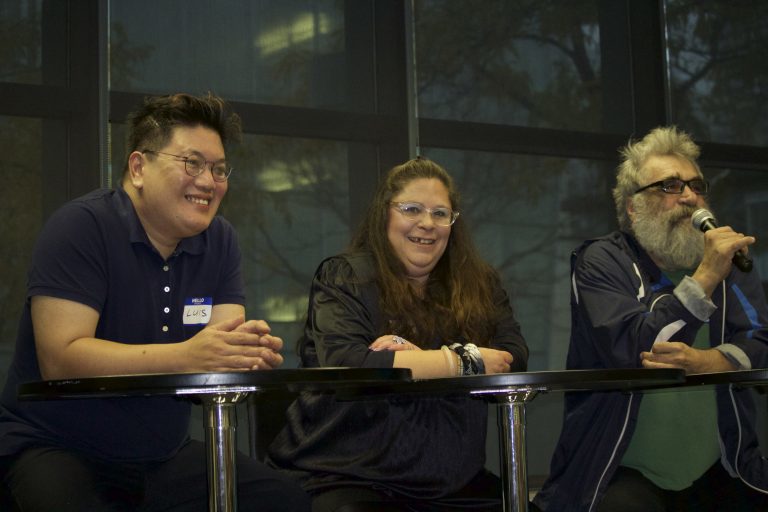Enabling people with mental illness to make films could challenge media stereotypes, say researchers
By Allison Ridgway for the Ryerson Journalism Research Centre
Three Canadian researchers are giving people who’ve experienced mental illnesses the resources and training to make their own documentary films to see if such videos challenge traditional media stereotypes about people who are mentally ill.
So far, participants have created videos with substantially different themes and frameworks than the stories on mental illness usually found in mainstream media, said Ryerson journalism professor Gavin Adamson, one of three principal investigators for the Recovery Advocacy Documentary Research (RADAR) project.
“Intuitively, it looks like it’s a whole different shape and set of stories that are being produced – mostly (stories) about recovery, social assistance, treatment, challenges with the mental health system in Canada and provincially,” said Gavinson, who is working on the four-year project with Rob Whitley of the McGill University psychiatry department and Kathy Sitter, a professor of social work at Memorial University.
“That’s not the same kind of issues you hear from mainstream journalism titles … predominantly they have articles about crime and violence. It’s usually police stories or court stories that reinforce the stigmatizing characteristics and that are a complete misrepresentation of what is happening in Canada on the streets”
Four RADAR films were premiered at the Ryerson School of Journalism earlier this month to an audience of around 50 people.
“People with mental illness want to be heard,” said first-time Suzanne Feldman, one of three participant filmmakers in Toronto.
“We’re here to encourage the truth to be known to people.”
Continue reading this story on the Ryerson Journalism Research Centre, where it was first published.

